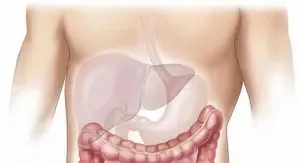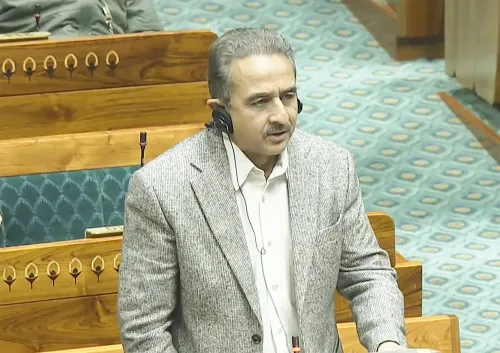Prioritize Sleep and Ditch Junk Food for Liver Wellness

Synopsis
Key Takeaways
- Quality sleep is essential for liver health.
- Junk food consumption can harm liver function.
- Late-night eating increases the risk of liver damage.
- NAFLD is a rising concern in India.
- Prioritize health over wealth for overall happiness.
New Delhi, April 26 (NationPress) Ensuring a restful night’s sleep and steering clear of junk food is crucial for maintaining liver health, stated Dr. S.K. Sarin, Director of the Institute of Liver and Biliary Sciences (ILBS) on Friday.
He emphasized that, as the name implies, junk food should be discarded, as its frequent consumption can greatly compromise liver health.
“The term junk food indicates it is waste. It should be thrown away. However, if you consider your stomach and intestines as trash bins, you can consume it. Otherwise, it’s best to avoid it,” Sarin articulated in a post on the social media platform X.
Junk food, laden with unhealthy fats, sugars, and processed components, heightens the risk of obesity, elevated cholesterol, and type 2 diabetes. These conditions subsequently elevate the likelihood of non-alcoholic fatty liver disease (NAFLD), which can escalate into severe issues such as cirrhosis and liver cancer.
Sarin also encouraged individuals to prioritize good sleep and refrain from late-night eating, as it can disrupt gut bacteria, which are vital for overall health. Research has indicated that those with inadequate sleep face a higher risk of fatty liver disease.
Moreover, consuming food late at night has been associated with an increased risk of significant fibrosis—a sign of liver damage. This occurs because the body struggles to process fats and carbohydrates during sleep, resulting in their buildup in the liver.
“Going to bed late and indulging in night-time snacks is not advisable, as the bacteria in your intestines, which aid in food digestion, will also be awake late. Restorative sleep is paramount,” the leading hepatologist advised.
Sarin urged individuals to prioritize their health over the pursuit of “money, power, and positions.” Instead, sustaining “a healthy body and quality sleep” is vital, as these are “the only two elements that bring happiness in life,” he concluded.
NAFLD, recently referred to as metabolic dysfunction-associated steatotic liver disease (MASLD), is a chronic liver ailment characterized by fat accumulation in the liver of individuals who consume minimal alcohol. It predominantly affects individuals with diabetes, obesity, hypertension, or high cholesterol.
Fatty liver disease is becoming a significant cause of liver ailments in India, impacting approximately three out of ten individuals in the nation.
In September of the previous year, the Union Health Ministry introduced updated operational guidelines and a training module for MAFLD to facilitate early detection and enhance patient care and outcomes related to this disease.










